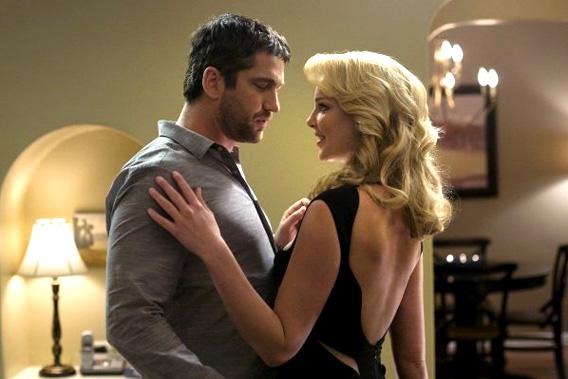Over at the Atlantic, Christopher Orr has a long meditation on the decline of the romantic comedy, which he chalks up to two significant factors: a decline in available talent, and the removal of barriers that couples need to overcome to be together. I think he’s right, but there’s also more to say. Orr writes:
It in turn begs the question of why today’s genuine stars (with all due respect to Kate Hudson and Matthew McConaughey) no longer bother to find the time for romantic comedy. Will Smith, for instance, displayed tremendous chops in Hitch—but apart from that toe-dip, he’s stayed clear of the water. And this generation’s most obvious fit, George Clooney, has modeled his career on that of Cary Grant in almost every way save his profound reticence to explore the genre that made the latter an icon.
But it’s not just the men opting out, and the women being, as New York Times movie critic A.O. Scott has suggested in the past, less talented than their predecessors. Women are opting out, too. Kate Winslet’s starred in some great, weird movies that exist at the edge of romantic comedy, including Eternal Sunshine of the Spotless Mind, and the deeply, charmingly bizarre Romance and Cigarettes, as well as a more conventional one, the underrated The Holiday. But why should one of the finest actresses of her generation lower herself to saving Gerard Butler, who is to Tom Hanks in next-gen rom-coms as Kate Hudson is to Meg Ryan? Similarly, Cate Blanchett has generally been too busy playing queens, malevolent government researchers, or even campy Nazi scientists to spend time making the audience wonder will they or won’t they. This isn’t even to mention an entire generation of young actresses coming up today, from Jennifer Lawrence and Saorsie Ronan, to Chloe Grace Moretz and Abigail Breslin, who clearly are trying to prove themselves as action stars or interesting character actresses rather than as traditional rom-com leads. (Whatever genre you think Silver Linings Playbook falls into, it’s not traditional rom-com.)
Orr is right that there are fewer and fewer good, and inherently funny, reasons for couples to be kept apart:
Society has spent decades busily uprooting any impediment to the marriage of true minds. Love is increasingly presumed—perhaps in Hollywood most of all—to transcend class, profession, faith, age, race, gender, and (on occasion) marital status … So new complications must be invented, test-driven, and then, as often as not, themselves retired. (The idea that geography posed a substantial challenge to true love seemed a stretch all the way back in 1993, for Sleepless in Seattle. In the Internet age, it doesn’t pass the laugh test.) The premises grow more and more esoteric: She’s a hooker. He’s a stalker. She’s in a coma. He’s telepathic. She’s a mermaid. He’s a zombie. She’s pregnant. He’s the president.
But a point I think Orr misses is that the genuinely strong romantic comedies of the last decade or so have ventured inward for obstacles, rather than inventing ludicrous external ones. In romantic comedies as in third-wave feminism, the proliferation of choices has forced protagonists to figure out what they really want, leaving indecision, self-doubt, and even arrested development as rich fodder.
Part of what made Bridesmaids so wonderful was that Annie Walker (Kristen Wiig) wasn’t an essentially perfect woman barred by class or reputation from pursuing true love. She was a self-loathing mess grieving the loss of a relationship and her professional dream who had to fix herself before she was capable of loving someone, rather than overcoming external obstacles to be with someone she already loved. In The 40-Year-Old Virgin, Andy (Steve Carell) had to overcome his deep-seated terror of sex, and of growing up, to be able to form an adult emotional relationship. If romantic comedies have gotten harder to do well, maybe it’s actually not because so many barriers to finding love have fallen, but rather because modern love’s gotten more difficult, and more difficult to capture.
